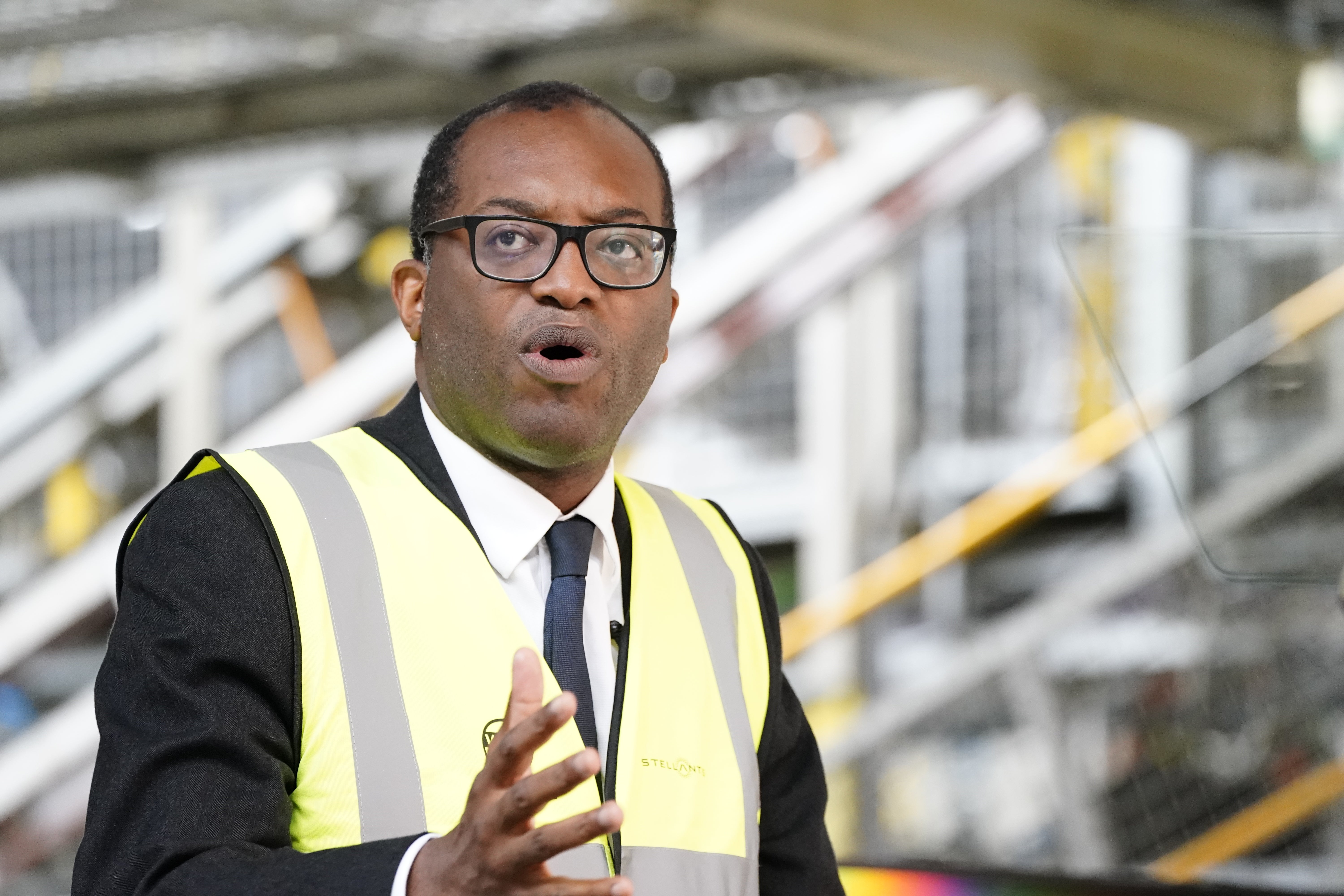Government ‘confident’ winter gas supply won’t be affected by global demand surge
Kwasi Kwarteng says protecting customers from price rises is the ‘absolute priority’

Your support helps us to tell the story
From reproductive rights to climate change to Big Tech, The Independent is on the ground when the story is developing. Whether it's investigating the financials of Elon Musk's pro-Trump PAC or producing our latest documentary, 'The A Word', which shines a light on the American women fighting for reproductive rights, we know how important it is to parse out the facts from the messaging.
At such a critical moment in US history, we need reporters on the ground. Your donation allows us to keep sending journalists to speak to both sides of the story.
The Independent is trusted by Americans across the entire political spectrum. And unlike many other quality news outlets, we choose not to lock Americans out of our reporting and analysis with paywalls. We believe quality journalism should be available to everyone, paid for by those who can afford it.
Your support makes all the difference.Business secretary Kwasi Kwarteng has insisted there is no “cause for immediate concern” over gas supplies, after holding urgent talks with industry leaders.
The cabinet minister played down the prospect of a winter emergency due to surging wholesale prices, and claimed the UK had more than enough capacity to meet demand.
After meeting with senior executives to discuss the impact of record gas prices, he took to Twitter to try to calm fears about increases in fuel bills and the effect on other industries.
“I was reassured that security of supply was not a cause for immediate concern within the industry,” he tweeted.
“The UK benefits from having a diverse range of gas supply sources, with sufficient capacity to more than meet demand. The UK’s gas system continues to operate reliably and we do not expect supply emergencies this winter.”
Natural gas prices are at a record high as countries around the world begin to recover from the Covid pandemic.
High energy prices are also linked to maintenance issues at some gas sites, a fire in Kent knocking out a major electricity cable connecting the UK with France, low gas supply from Russia and Norway, outages at some nuclear stations, and lower levels of solar and wind-power generation.
The price rise has already forced the closure of two fertiliser plants in Teesside and Cheshire. That in turn has created a shortage in carbon dioxide, which could severely affect supplies of meat and carbonated beverages.
It could also cause some energy companies to fold. At least four smaller firms are expected to go bust next week, the BBC has reported, with larger firms being asked to step in to cover supplies to up to one million customers.
One of the UK’s biggest poultry suppliers said CO2 problems, combined with staff shortages, would compromise the supply of turkeys. “Christmas will be cancelled,” warned Ranjit Singh Boparan, the owner of Bernard Matthews, which is part of the 2 Sisters Food Group.
Sky-high gas prices have also led to two small energy companies – Utility Point and People’s Energy – going bust after locking customers into fixed-rate tariffs that were no longer sustainable for the firms.
Annual gas and electricity bills are set to soar by up to £280 next year due to the 60 per cent increase in wholesale energy prices, in addition to price rises in October.
Experts say that rising energy bills, combined with the end of both furlough and the universal credit top-up, risk creating a living standards crisis this autumn.
Labour’s shadow business secretary, Ed Miliband, said: “A basic duty of government is to ensure secure, affordable energy supplies for businesses and families.
“It is a fundamental failure of long-term government planning over the last decade that we are so exposed and vulnerable as a country, and it is businesses and consumers that are paying the price.”
Mr Kwarteng said protecting customers from huge price rises was “an absolute priority”.
“The energy price cap exists to protect millions of customers,” he tweeted. “Initiatives such as the Warm Home discount, winter fuel payments and cold weather payments will help further.”
He also sought to defend the government from criticism over its long-term energy policy, and said he was confident that energy security could be maintained while increasing the usage of renewables.
Mr Kwarteng said: “Our largest single source of gas is from domestic production, and the vast majority of imports come from reliable suppliers such as Norway. We are not dependent on Russian oil and gas.
“However, our exposure to volatile global gas prices underscores the importance of our plan to build a strong, home-grown renewable energy sector to further reduce our reliance on fossil fuels. Renewable energy has quadrupled since 2010, but there is more to do.”
The minister said he would meet industry regulator Ofgem again on Sunday before organising a meeting with industry leaders on Monday to “manage the wider implications of the global gas price increase”.




Join our commenting forum
Join thought-provoking conversations, follow other Independent readers and see their replies
Comments